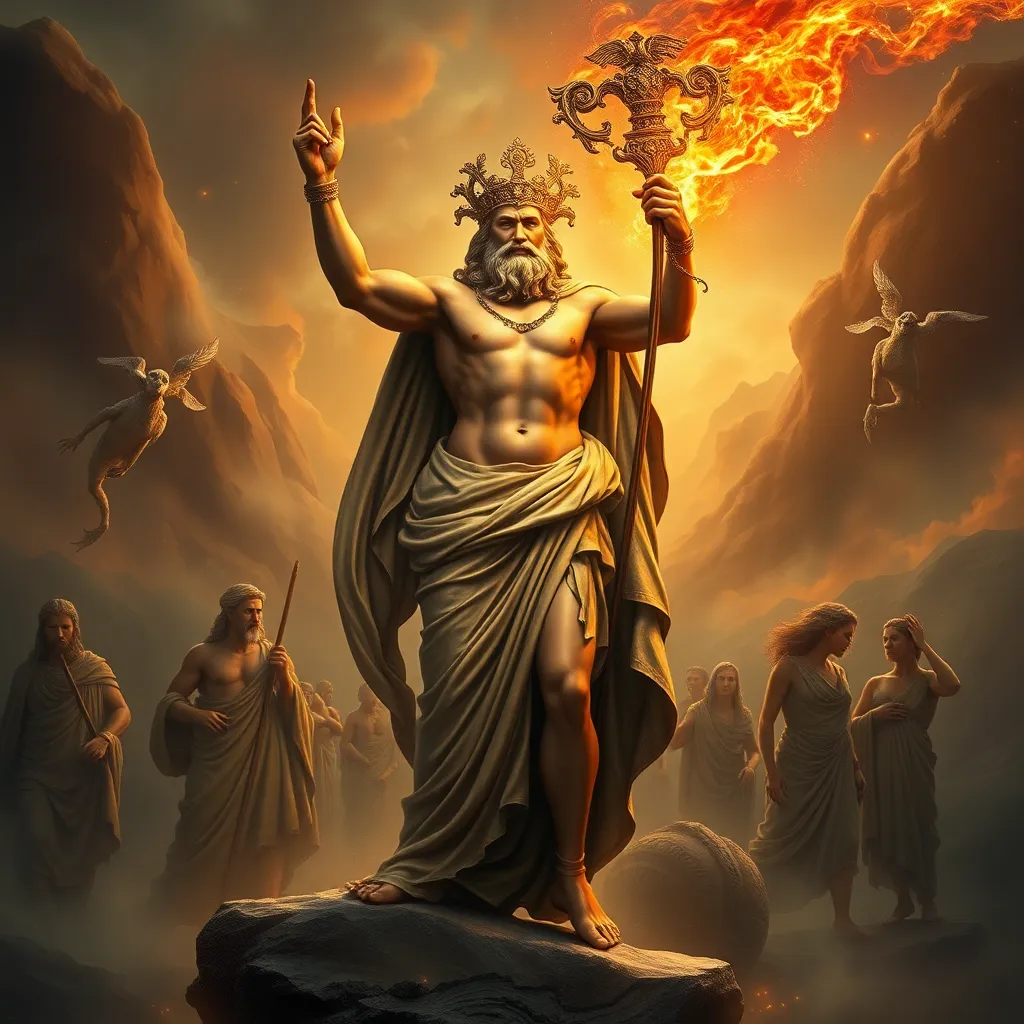Dionysus as a Catalyst for Change in Greek Society
I. Introduction
Dionysus, the Greek god of wine, fertility, and revelry, occupies a unique place in Greek mythology. He is often depicted as a figure that embodies the dual nature of humanity—both civilized and chaotic. As a symbol of change and transformation, Dionysus represents the fluidity of societal norms and the power of ecstasy in human experience.
This article explores the significant role of Dionysus as a catalyst for social, cultural, and political change in Greek society through his influence on religion, art, and communal practices. By examining his historical context, themes of liberation, and lasting legacy, we can understand how Dionysus shaped the world of ancient Greece and continues to resonate in modern times.
II. Historical Context of Dionysus
The cult of Dionysus has its roots in ancient agricultural practices and the worship of nature’s cycles. As the god of wine and fertility, Dionysus was revered by communities seeking to ensure bountiful harvests and successful vine cultivation.
- Origins and Development: The Dionysian cult likely emerged from pre-Greek agricultural societies and evolved over centuries, incorporating various local deities and practices.
- Role in Religion and Festivals: Dionysus was central to several important festivals, most notably the City Dionysia in Athens, which included dramatic competitions and public celebrations.
- Socio-Political Climate: During the rise of Dionysian worship, Greece was experiencing shifts in political power, with the emergence of democracy and the questioning of traditional authority.
III. Dionysus and the Concept of Liberation
Dionysian rituals were characterized by themes of freedom and ecstasy, providing a channel for individuals to transcend societal constraints. The practice of revelry and intoxication allowed participants to explore their identities beyond the rigid structures of Greek society.
- Breaking Societal Norms: The ecstatic states encouraged by Dionysian festivities fostered a spirit of rebellion against social norms, offering a space for expression and empowerment.
- The Role of Wine: Wine, as a sacred substance associated with Dionysus, acted as a social lubricant, promoting cohesion among participants and facilitating communal bonding.
IV. Theatrical Innovations and Cultural Impact
The introduction of drama and theater during Dionysian festivals marked a significant cultural shift in ancient Greece. The god’s influence on playwrights and the development of Greek tragedy created a lasting legacy in literary and performing arts.
- Theater and Drama: The City Dionysia featured performances of tragic plays that explored complex themes of human experience, morality, and the divine.
- Social Commentary: The theater served as a platform for social commentary and political discourse, allowing playwrights to address contemporary issues through the lens of myth and allegory.
V. Gender Dynamics and the Role of Women
Dionysian rites played a crucial role in challenging traditional gender roles in ancient Greece. The inclusion of women in these rituals allowed for a re-examination of their societal positions and contributions.
- Inclusion in Rites: Women, often referred to as Maenads or Bacchae, actively participated in Dionysian celebrations, embracing their agency and challenging patriarchal norms.
- Exploration of Gender Roles: Bacchic rituals provided a space for women to express themselves freely, exploring themes of liberation and empowerment.
VI. Dionysus and the Political Landscape
The worship of Dionysus was closely intertwined with the political dynamics of ancient Greece. His themes and symbols were utilized by political leaders to bolster their authority and influence.
- Worship and Power: Political leaders often aligned themselves with Dionysian worship to gain favor among the populace, using festivals as a means of solidifying their power.
- Dionysian Themes in Rhetoric: The imagery associated with Dionysus was frequently employed in political rhetoric to convey messages of freedom, democracy, and the people’s will.
- Case Studies: Notable instances of political change influenced by Dionysian celebrations include the rise of democracy in Athens and the societal shifts during the Hellenistic period.
VII. Legacy of Dionysus in Modern Society
The themes associated with Dionysus continue to resonate in contemporary culture, influencing various art forms, literature, and social movements. His legacy is evident in the ongoing exploration of freedom, identity, and communal experiences.
- Relevance in Contemporary Culture: Dionysian themes of ecstasy and liberation are reflected in modern festivals, music, and art, emphasizing the universal desire for connection and transformation.
- Influence on Art and Literature: Many modern artists and writers draw inspiration from Dionysian motifs, exploring the complexities of human nature and the struggle for liberation.
- Symbol of Rebellion: Dionysus serves as a powerful symbol of rebellion against oppression and conformity, inspiring contemporary social movements advocating for change.
VIII. Conclusion
Dionysus’s multifaceted role in fostering change in ancient Greek society highlights his importance as a cultural symbol. Through his influence on religion, art, and communal practices, he catalyzed significant social and political transformations.
Reflecting on the lasting impact of Dionysian influence, we recognize the importance of embracing change through cultural symbols that challenge the status quo. Dionysus remains a timeless reminder of the power of ecstasy, freedom, and the transformative potential within us all.




